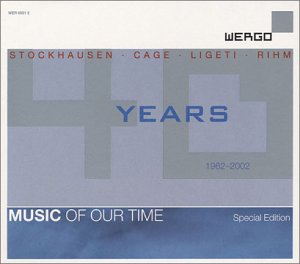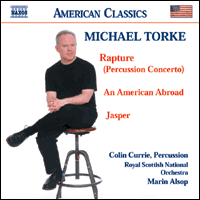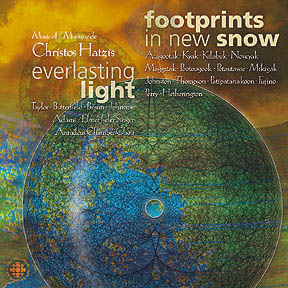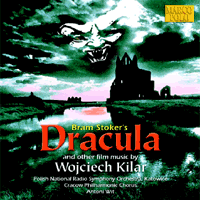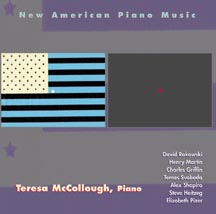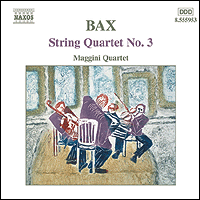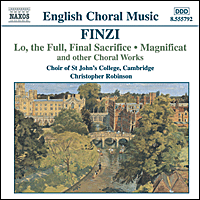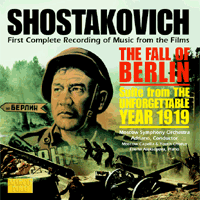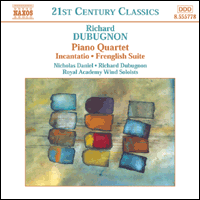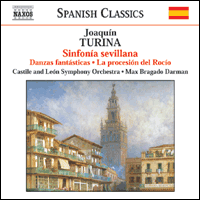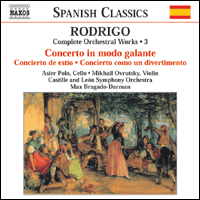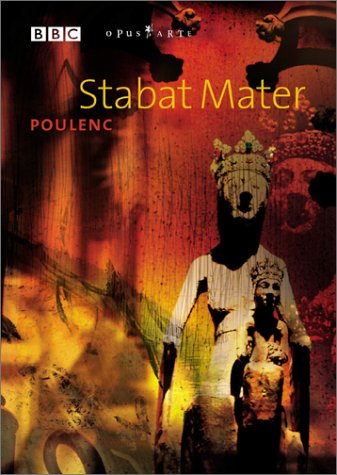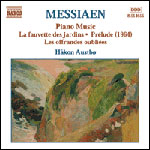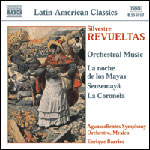Stephan
Micus:
Into the
Mystic
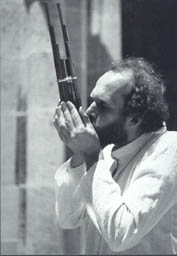
|
| By
Duane Harper Grant
One
of the highlights of the Other Minds 9 festival in San Francisco this week
is a rare North American appearance by Stephan Micus.
Among
the many and varied instruments that the German-born, Menorca abiding musician/composer
and musical shaman of sorts has studied--usually with a master in
the context of its culture--are the dudek, ney, shakuhachi flute, steel
drums, guitar, kalimba and marimba. He has also learned to play and incorporate
these instruments into his own compositions and recordings.
Recently
Micus spent several weeks in Cuba where he went to seek out master musicians
and learn about some of the traditional musical instruments and their cultural
contexts. For Micus, these traditional acoustic instruments possess
a fascination of history, culture, sound and musical language. He has a
deep interest in exploring and preserving all of these facets but he does
so with a style and a sensibility that is uniquely his own.
In
his fifteen-going-on sixteen recordings, all or which are on ECM records,
he has combined, melded, and mixed together different instruments, sometimes
from distinctly different cultures. Indeed, one has to be in awe
of the way the world, people, culture and music come together in his music
and compositions. Over the years he has assimilated a vast range of cultures
and instruments into his own musical context and created his own,
unique musical voice.
All
in all what has evolved and developed is a music unlike any other but one
that has a basic fundamental and elemental essence of sound and rhythm
as a common thread.
I talked
with Stephan via phone from his home on the island of Menorca
S/21:
How did you, why did you become interested in music.
SM:
It started in that time when all children in school had to learn the recorder,
a kind of flute and so it was not even any choice of mine at all but I
was the only boy, at least in my class when I was 6; I was the only boy
who liked his lessons. At that time I really liked to play the flute. And,
well, later I started to become more and more interested in music and for
my 12th birthday I wanted to have a guitar and I started teaching myself
guitar. Later I traveled to Spain when I was 15 and studied flamenco guitar
or even earlier maybe 13 or 14. And then it continued. I became interested,
usually through recordings, in all kinds of instruments, all kinds of different
cultures. I traveled to these places and studied the music and this is
going on until this very day.
S/21:
Yes, it's quite an interesting odyssey that you have been taken on or have
taken up. Throughout the years you have traversed many worlds and many
cultures. So really, you came to the realization that music was going to
be your path in your mid teens then? Did you really know at that point?
SM:
Yes, when I was 14 I had already started to [write] small compositions
and I used to play in some bands. We used to play kind of rock music for
[dances]. But then already when I was about 16 I stopped all that I used
to play with just one other person. We had just acoustic guitars and concert
flute. I started at that time to [write] songs with English text and then
later I started to travel to India and all these places. So, I had my first
album made when I was still in High School. So this was very dear [to]
me that I wanted to play music.
S/21:
And do it a certain way too.
SM:
Yea, I was always, I mean this started to evolve. When I was about 17 the
first records from India came out. Ravi Shankar, for me was a real amazing
influence and it touched me so strongly that when I finished high school
I went to India and I wanted to study [their] classical music. So from
very early on I started to be interested in strange instruments, strange
from a European point of view. But I was always attracted to [the] more
archaic instruments.
S/12:
More exotic.
SM:
Well, exotic is more of a subjective point of view. To someone from India
a violin is exotic. You could say more correctly that these instruments
are more original and archaic and primitive in a positive way. In the way
that maybe western instruments have become highly sophisticated and maybe
too much so. I was always attracted to more simple and direct instruments
to the extreme like the African harps which I have later on discovered
which have only 4 or 5 gut strings and only a gourd and a stick.
I mean in you compare it to the classical European harp [well] some people
might even laugh at these instruments, not take them seriously you know.
-more-
.
|
|
| The
Closing Of A New-Music Friend The closing of the new-music label CRI
in January changed the classical music landscape. "CRI, for many listeners,
was not just an entree into new music but appealed to an anarchic way of
listening: adventurously, without expectations, and individually, as an
explorer of sound unfettered by what authorities (critics, professors,
pompous friends) dictate. Young listeners, tired of whatever music they
were weaned on, could find music on CRI that was, by virtue of being the
forgotten avant-garde of 20 years before, far more foreign and fascinating
than the newest of the new." Washington Post 03/02/03
Lost
Beethoven Concerto Is Performed A lost Beethoven oboe concerto got
a performance this weekend. "Two Dutch Beethoven enthusiasts have pieced
together the musical clues, put them into 18th-century orchestral context
and reconstructed the second movement of the only oboe concerto Beethoven
ever wrote. The slow, melodic Largo movement of the Oboe Concerto in F
Major was performed Saturday night in Rotterdam and billed as a 'world
premiere' - even though the full concerto was performed at least once before,
210 years ago." Nando Times (AP) 03/02/03
Prokofiev
- Great Music, Lousy Timing Prokofiev's legacy has been marred by contradictions.
"He produced some of the sprightliest, most ingenious and most enduringly
popular music of the 20th century. Yet Prokofiev's career was also, in
the brisk summation of music historian Francis Maes, 'a succession of misjudgments,'
marked by flawed calculations on the artistic, personal and political fronts."
San Francisco Chronicle 03/02/03
Vanity
Books Set To Music So you have a song you've written. So you hire pros
to finish it up and record it. "The American Song-Poem Anthology: Do You
Know the Difference Between Big Wood and Brush'' collects 28 mind-bendingly
strange and very funny songs paid for by amateur lyricists and recorded
by hard-up professional singers and musicians. 'It's the only scam I know
of where each transaction is a unique work of art. Of course the work of
art isn't always great. These are vanity books set to music. But that's
what makes it so interesting. You have these very talented musicians working
very rapidly to fulfill a quota of so many songs per hour, and sometimes
the results transcend the limitations of the form'." Boston Herald 03/02/03
A
New Way To Hear/Present Concerts The way that we go to the opera, the
theatre and the concert has hardly changed for centuries. The great majority
of such attendance takes place in venues conceived on the model of churches.
The performers do their thing at one end. We, the audience, sit silently
in rows in the rest of the building and look at them doing it. This can
be a difficult and even intimidating experience for those who are not used
to it, especially in badly designed or unsuitable spaces. But you have
only to attend a performance in a different kind of venue to see at once
the possibilities for addressing the access problem in a different way."
The London Symphony has a new venue. "It is not just a huge step forward
for this most dynamic of Britain's orchestras, consolidating the LSO's
role in the vanguard of orchestral music in London. It is also a step down
a path that other performing arts organisations of all kinds will surely
have to follow eventually - if they have the funding - of changing the
terms on which orchestras meet their audiences." The Guardian (UK) 02/28/03
Stravinsky's
Mouthpiece? Robert Craft's relationship with Stravinsky draws fresh
attention with the publication of a new Craft volume. Though the composer
has been dead 30 years, the Craft continues to write of his friend, reviving
old debates about where the composer ends and Craft begins..."The final
Jamesian irony is that Robert Craft is able to write supremely well only
as a ventriloquist, requiring no less than an authentic genius for his
dummy." Weekly Standard 03/03/03
Music:
Electronic Inroads Almost all popular music uses some form of electronic
instrumentation. Not in classical music though. "The future of innovation
in music seems almost surely to be in digitally created music whose origin
is either purely electronic or in imitation of acoustical sounds, "rather
than string instruments growing extra strings or things like that." Christian
Science Monitor 02/28/03
Everybody
Sing! Singing in choirs is the most popular performing arts activity
in the U.S., according to a new study, with better than 28 million Americans
(about 10% of the total population) singing in some sort of organized chorus.
"The study found a link between early exposure to choral singing and adult
participation in choruses. More than half of adult singers had grown up
in a household that included a chorus member, and nearly 70 percent had
first sung in elementary or middle school." Andante 02/26/03
Music
From Out Of This World The Kronos String Quartet has lately been preoccupied
with sounds from out of this world - outer space. Sounds collected from
the cosmos have been incorporated into the music. "What's amazing about
the noises is how organic they are - sometimes you feel they could be the
sounds of insects or whales. The visuals, too, make the universe seem conscious
- the Sun close up seems like a living body, with a pulsing heart." The
Telegraph (UK) 02/24/03
Music
From A Political Time - Does It Work? Do symphonic music and politics
mix? "To a great degree, the medium defeats itself. The sheer time, effort
and expense required to compose, rehearse and perform a full-scale symphonic
work militates against writing one as an immediate response to a specific
political situation. Works assembled quickly to make a point tend to show
it, and in the concert world ephemera — even well-meaning ephemera — slips
into the mist moments after its premiere, taking its message with it."
The New York Times 02/25/03 |
Last
Week's News

|
  
Our
current government may be mad at the French but New York isn’t.
Music will have a distinctly French accent this month as New York City’s
musical institutions join together for the "Sounds French" Festival, which
will bring together an unprecedented gathering of French musicians and
composers, and will hear the largest number of French contemporary works
performed at an American music festival. More than 30 events during the
month will feature contemporary music of France, performed by both French
and American musicians.
The opening concert was held
last night at the Miller Theatre and featured a musical portrait of the
late Gérard Grisey, performed by Ensemble Sospeso. The Festival
will close with the U.S. premiere of Pascal Dusapin’s opera To Be Sung,
which will be performed at Florence Gould Hall on March 27. Throughout
the month, the music presented will range from traditional orchestral and
chamber compositions to more adventurous spectral and electronic music,
with many New York premieres and a number of world premieres. While some
younger composers will be traveling to New York for the first time for
the festival, others have not been to New York in many years.
“Sounds French aims to open
this door to New York audiences by sharing the innovations in French music
from the last half-century,” says Artistic Advisor Eric de Visscher, a
leading figure in the new music field for the last decade. “The festival
draws a line from Messiaen, Dutilleux and Boulez to the generation that
follows, mainly the so-called spectral movement—composers such as Grisey,
Murail and Dufourt—and to those, much younger, who aim for a synthesis
between them. This younger generation, represented by Bruno Mantovani and
others, integrates the traditions of 20th-century French music with new
techniques and global influences.”
Highlights of the Festival
include Pierre Boulez performing his legendary Répons with the Ensemble
Intercontemporain at Carnegie Hall; Mstislav Rostropovich conducting Dutilleux’s
Timbres, Espace, Mouvement with the New York Philharmonic; Grisey’s music
at the Miller Theatre; Dusapin’s opera To Be Sung, presented by l’Opéra
Français de New York; and the Guggenheim Museum’s "Works and Process"
presenting premieres by Marc-André Dalbavie and Philippe Manoury.
The complete piano works of Tristan Murail will be performed at the Miller
Theatre; organist Olivier Latry will perform at the Church of St. Ignatius
Loyola, and composer and organist Thierry Escaich will perform some of
his own music in the same church. Also, leading Messiaen interpreter Roger
Muraro will perform the composer’s complete Catalogue d' Oiseaux.
View
the complete calendar for March
|
Chamber Music
by Curtis Composers
by
Deborah Kravetz
Three Songs
in Chinese touch on the ephemeral -- of wind, wisp of
cloud and
the color of a bird. Sung by soprano Rachael Garcia with the
composer on
piano, Wind is a wordless vocalise rising and falling in a
narrow range
accompanied relentlessly by heavy piano chords. Yellow Bird is
a lively and
raucous flash of color, while Ou Ran (Transcience ) is sung a
capella in
the first part of sorrow, with lightly flowing runs for the
second part
of recollection of past happiness.
Eli Marshall's
Sonatina for Clarinet and Piano is a flowing conversation, each reflecting
the same theme, but not repeating each other. It was light and wistful
in tone in the Andante cantabile , and with a bouncy rhythm in the Allegro
molto that demanded, and got, a lot of energy from Jose Franch-Ballester,
clarinet, and Amy Jiaqi Yang, piano.
Four Love Songs
by James Ra for baritone and cello and piano to poems of W.B. Yeats take
heed of the key words of the text for the shaping of the melodic line.
Texture of piano, Amy Jiaqi Yang, and cello, Earl Lee, becomes more complex
between phrases, as very well-constructed mini-songs, and never obscures
the clarity of the language. Baritone Alexander Tall never lost the emotional
character of the pieces, but I wish he could have found his own center
of gravity away from the piano.
In Clarinet
Quintet by Justin La Vallee, a small repetitive theme becomes broader and
more divergent among the parts as it gains intensity, then draws together
to a single chord. A strong cello theme predominates, as a clarinet theme
comes and goes amid a blustering whirl of notes. A quiet section is followed
by a light string passage, and a measured tutti rises to a climax and a
quiet finish.
Pro and Contra
for string quartet by Sheridan Seyfried, born in 1984, the youngest of
the composers represented on this program, was the odd apple in this bushel,
standing out as raw and edgy, surging in and out of short phrases, starting
and stopping with intense energy whether loud or soft -- a study in contrasts,
and that was just the Moderato. Con fuoco was even more intense and markedly
more rhythmic, and the piece elicited wild applause from the very appreciative
audience.
The program
closed with Six Short Pieces for Brass Quintet by Solbong Kim. Set almost
as theme and variations, this piece gave pairs of instruments duet phrases
alternating with tutti in six short movements. One staccato section gave
the trumpet a flowing melodic theme mimicked and accompanied by the ensemble.
A variety of mutes varied the tonal texture of the sections.
Chamber
Music by Curtis Composers
Philadelphia
January
29, 2003
Reposted
from Penn Sounds 2/24/03 |
Previous Interviews/Profiles
Simon
Rattle, Michael Gordon,Benjamin
Lees, Scott Lindroth,
David
Felder, Mark-Anthony
Turnage, Erkki-Sven Tüür,John
Luther Adams, Brett Dean,
Judith
Lang Zaimont,
Meyer
Kupferman, Evan Chambers,
Poul
Ruders,
Steven R. Gerber,
Gloria
Coates
Previous Articles/
Busoni
The Visionary
The
Composer of the Moment: Mark-Anthony Turnage
Electronic
Music
Voices:
Henze at 75
Henze
Meets Emenim
On
Finding Kurtag
Charles
Ruggles: When Men Were Men
Ballet
Mécanique
The
Adams Chronicles
|
| Record
companies, artists and publicists are invited to submit CDs to be considered
for our Editor's Pick's of the month. Send to: Jerry Bowles, Editor,
Sequenza 21, 340 W. 57th Street, 12B, NY, NY 10019 Also, feel free
to nominate your favorite composer-- even if it's you--for Spotlight of
the Week. |
|



